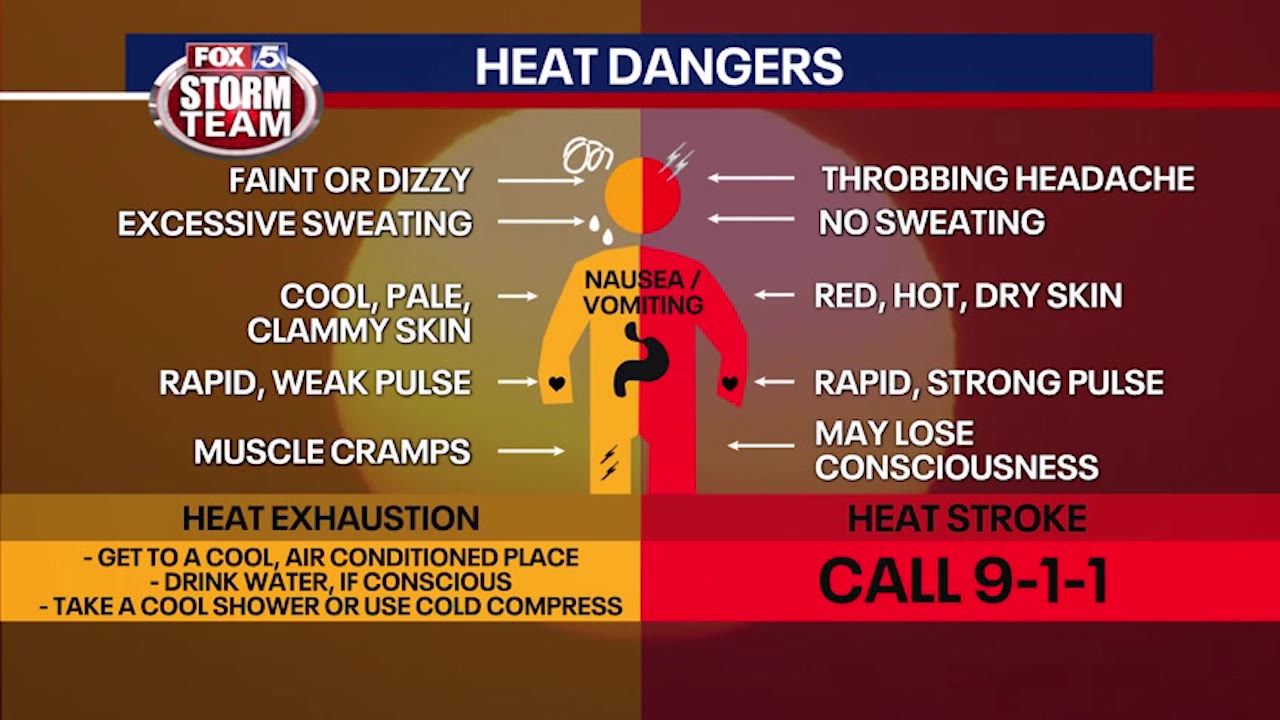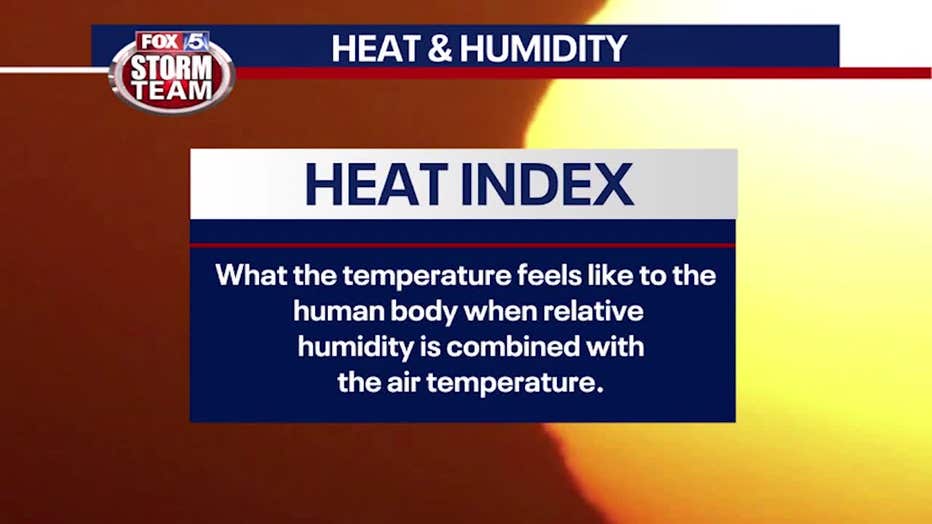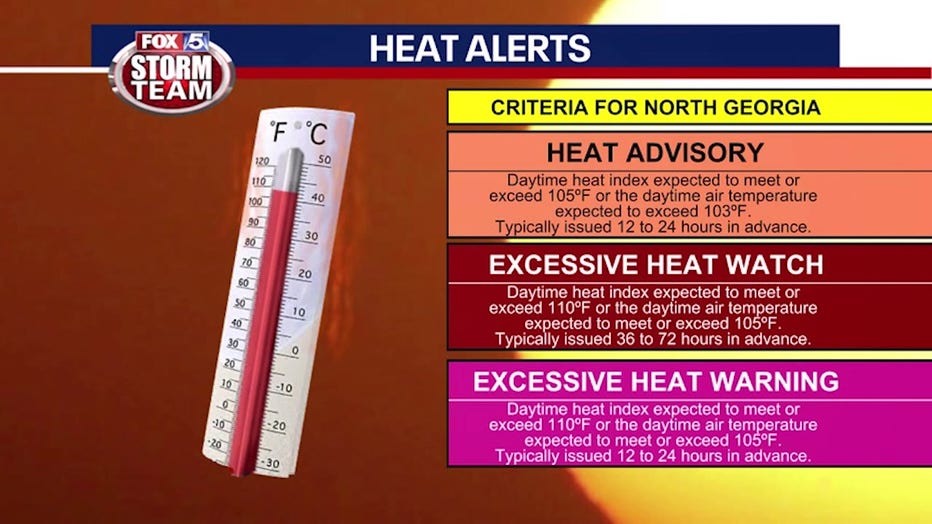Heat #1 cause of weather-related deaths and illnesses in U.S.

The dangers of summer heat
You've heard the phrase, "it's not the heat, it's the humidity." When it comes to heat-related illnesses, it's actually both. FOX 5's Jonathan Stacey explains.
"It's not the heat, it's the humidity."
That's a partly valid phrase you may have heard in the summer, but it's actually both.
What is the heat index?
The heat index, also known as the apparent temperature, is what the temperature feels like to the human body when relative humidity is combined with the air temperature.
When heat index values exceed 90 F your health can be impacted, and the higher the number the more serious, the impacts become.

What are heat-related illnesses?
The two main heat-related illnesses are heat exhaustion and heat stroke.
Whenever heat exhaustion occurs get the victim out of sun and into the AC. It's also a good idea to lay the person down and loosen their clothing. Apply cool, wet cloths to hydrate the outside of their body, and give them sips of water to hydrate the inside.
When someone experiences symptoms of heat stroke call 911 and seek emergency medical attention fast. Provide the same care as you would for a person dealing with heat exhaustion, but don't give the person fluids. Time is of the essence in this situation.
Heat stroke and heat crumps can also occur when heat indices run high.
We as forecasters do our best warn you before high heat takes over north Georgia, these are the most alerts regarding heat:
What are the different kinds of heat alerts?
A Heat Advisory may be issued the daytime heat index is expected to meet or exceed 105 F or the is daytime air temperature expected to exceed 103 F.
An Excessive Heat Watch may be issued when the daytime heat index is expected to meet or exceed 110 F or the daytime air temperature is expected to meet or exceed 105 F. These alerts can be issued up to three days in advance whereas excess heat warnings are issued when like temperatures are more imminent.

Be sure to look after children, the elderly, expecting mothers, and those dealing with chronic health conditions when heat alerts are in effect. Heat's impact on their bodies is oftentimes more severe.
For more educational lessons on the surrounding weather, download the FREE FOX 5 Storm Team app and following @FOX5StormTeam on Twitter.

